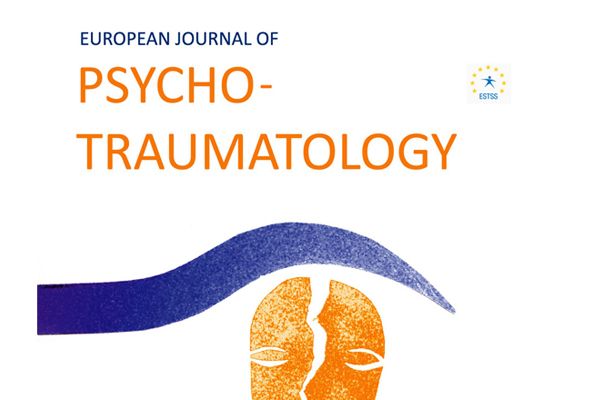10 november 2020
European Journal of Psychotraumatology
Peter Sele, Asle Hoffart, Harald Bækkelund & Tuva Øktedalen
https://doi.org/10.1080/20008198.2020.1796187
Abstract
Background: The International Trauma Questionnaire (ITQ) is a self-report measure for post-traumatic stress disorder (PTSD) and complex post-traumatic stress disorder (CPTSD), corresponding to the diagnostic criteria in the International Classification of Diseases, 11th Revision (ICD-11). A 12-item version of the ITQ based on samples from English-speaking countries has been presented, and the wider generalizability to other languages needs to be examined.
Objective: The current study examines the psychometric properties of scores from a longer, preliminary 22-item version of the ITQ and the current reduced 12-item version by means of generalizability theory (G-theory) and confirmatory factor analysis (CFA).
Method: The 22-item version of the ITQ was translated into Norwegian and administered to patients in two trauma treatment trials (total N = 202). A generalizability study was used to investigate the psychometric properties of scores reflecting CPTSD. G-theory was also used to investigate alternative measurement designs to optimize the sufficient number of items that provide acceptable generalizability and dependability of scores. Model fit to the theoretical factor structure was then examined by CFA, both for the 22-item version and for the 12-item version of the ITQ.
Results: The two subscales negative self-concept and relational disturbances had acceptable generalizability coefficients. We found substantial measurement error related to affective dysregulation, mainly attributable to affective hyperactivation. A latent factor structure model with two separate affective dysregulation factors: hyperactivation and deactivation, represented the data well in the 22-item version. The proposed confirmatory structure model for the 12-item short form did not converge in the CFA.
Conclusion: This study supports the applicability of the ITQ in a non-English-speaking country and provides support for the validity of the Norwegian translation. Further research is needed to improve the psychometric properties of the affective dysregulation subscale.

Het European Journal of Psychotraumatology (EJPT) is een peer-reviewed, interdisciplinair wetenschappelijk tijdschrift dat deel uitmaakt van de European Society for Traumatic Stress Studies (ESTSS).
Het EJPT heeft als doel om wetenschappers, behandelaren en experts te betrekken bij de belangrijkste vraagstukken rond stress en trauma, waaronder individuele gebeurtenissen, herhaalde of chronische trauma's, grootschalige rampen en geweld.

